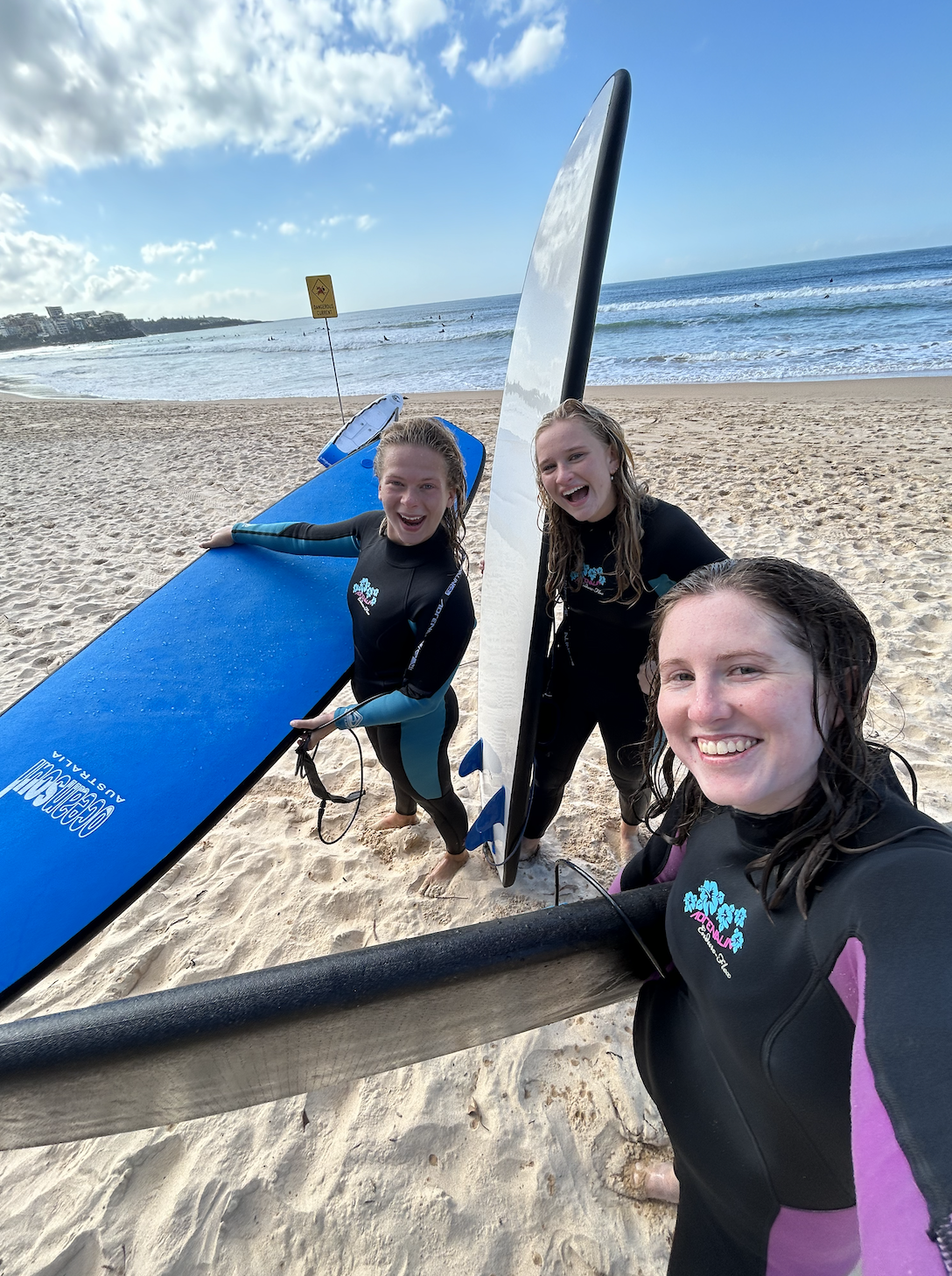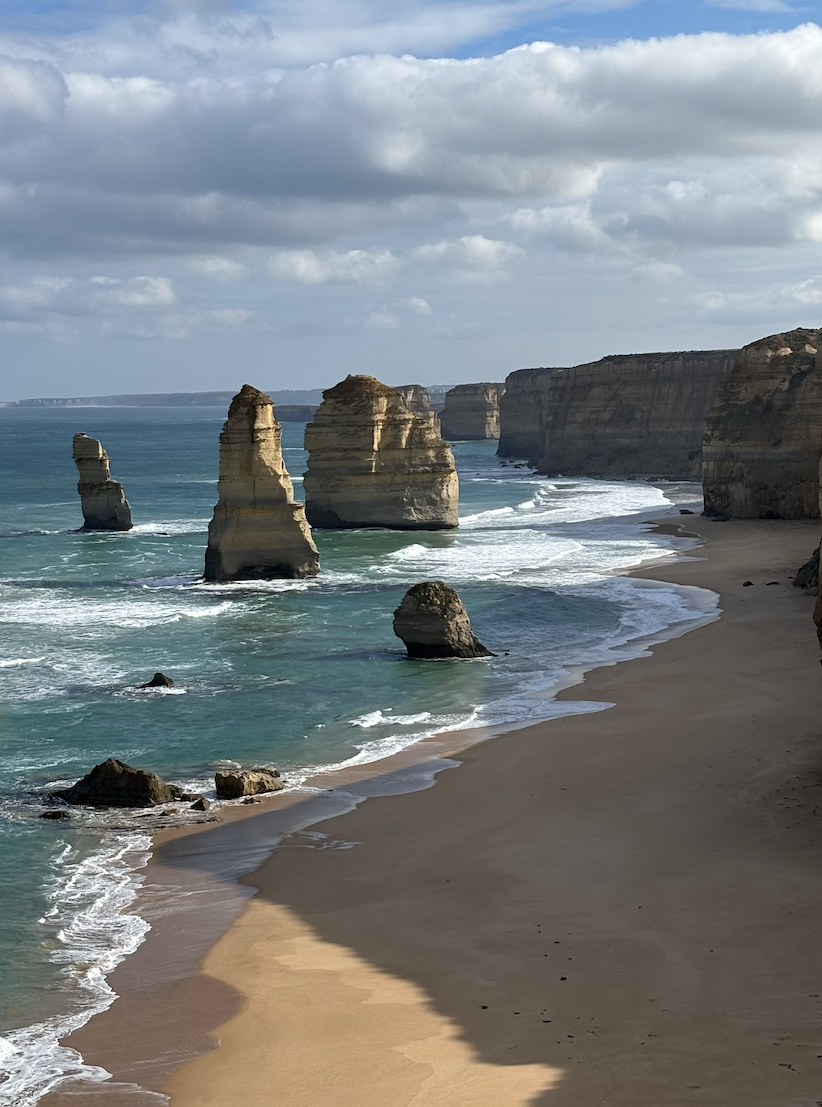Are you a UBC undergrad thinking about going on a student exchange? It can be a daunting decision. You might wonder, what's it like spending a year or a semester in another country? How can you prepare? And how do you handle it when things go sideways? We talked with a group of UBC Global Ambassadors who studied abroad with a Go Global program. They spoke with us candidly, sharing their personal impressions, fears and misgivings, best memories, top tips and advice. (This story is part of a series of Global Exchange Insider interviews.)
Meet Kseniya Yakovenko, a 5th-year UBC undergraduate student in Kinesiology from North Vancouver, BC.

Kseniya Yakovenko at Cradle Mountain, TAS, AUS (photo: Steph Onga)
Before you go
Why did you pick University of Sydney for your exchange? How did you hear about it?
I chose to go to the University of Sydney (USYD) for a few reasons: I knew that I wanted to go to Australia to study because I had always wanted to visit again since my trip back in 2018. So that narrowed down my options. Second, I was studying kinesiology, and there were not many options around the world for transferable credits. However, USYD offered many classes that I was able to take and for credit. Lastly, I had some friends who had previously done their exchange in Sydney, and absolutely loved it, so I was sold.
What was the application process like? Any tips?
Fairly straightforward. I felt I was supported the whole way through with the Go Global team.
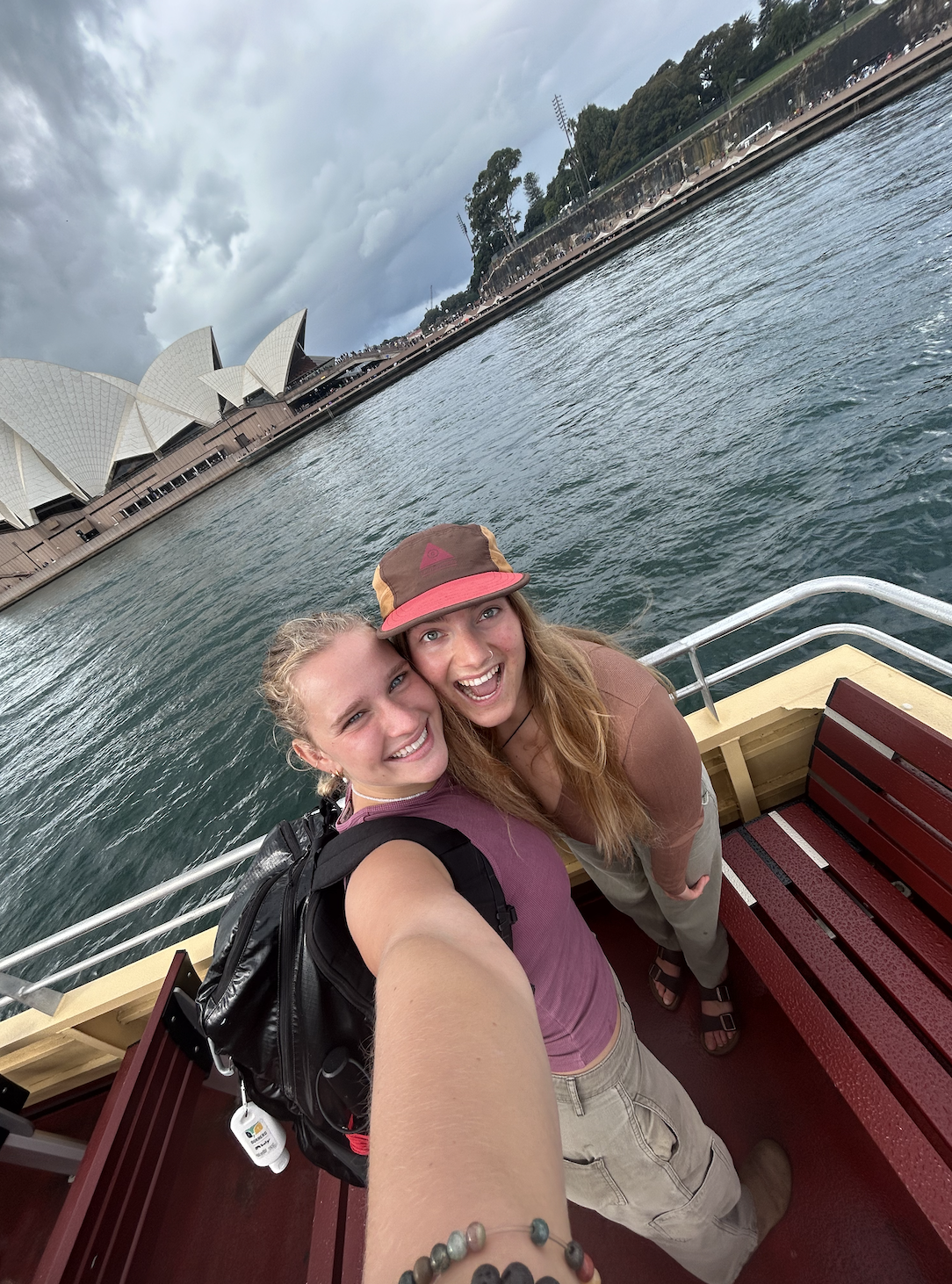
Left to right: UBC students, Kseniya Yakovenko and Nina Tolnai, on Sydney Harbour Ferry to Manly Beach, NSW, AUS (photo: Kseniya Yakovenko)
How did you prepare? Anything to be aware of? (travel, cultural differences, classes, etc.)
Apart from academics, the preparation was the most challenging part. Ensuring that I applied for the correct visa, organizing housing, booking flights and monitoring for decent prices, as well as budgeting, and renewing my passport. These tasks were overwhelming. But I took them one by one, and felt that it was super helpful to make deadlines for myself. Since all my preparation was happening in the fall of 2023, I was also taking classes at UBC that semester and working. I had to dedicate time to these tasks and ensure that I did not forget anything. I would recommend starting as early as you are able to, in case you run into any bumps in the road, so that you have time to correct anything.
What worries did you have beforehand? How did you overcome the anxiety?
Before leaving for my exchange, I was incredibly anxious! I had never travelled alone for that long before, let alone lived in another country. I was worried about living costs, academics, missing my family and friends or even if I would fit in there. To alleviate some of my anxiety, I decided to take this experience into my own hands and shape it into whatever I wanted it to be. I decided I was doing this exchange for myself, and my own growth as a student, but more so as a person. One actionable item was planning a solo trip before my exchange to Indonesia. I stayed at a surf camp in Bali, and got to relax and meet some really awesome people, before diving into academics and moving to Sydney for the next six months.

Left to right: Sammi Schweizer, Haley Bloch, Kseniya Yakovenko, Morgan Corkill at Cape Hauy Lookout, Tasman National Park, TAS, AUS (photo: Steph Onga)
During the experience
How was the overall experience? What did you learn?
Incredible, fantastic and all of the other synonyms for those words. Doing an exchange, especially in Australia, has been one of my favourite parts of life, let alone university, so far. After flying from Canada to Indonesia, then to Australia, I had already settled into a travelling mindset and felt as if nothing could stop me from having a good time. I moved in with some family that I had in Sydney, and their place was so close to the university that I walked every day. I loved having sunny days and starting the school year in 25-degree weather. I made incredible friends, with whom I am still connected and have met up with; one even came to visit me in Canada the summer after I returned.
“I have been working hard at school and many different jobs since I was 16. Going on exchange, at least for me, really felt like taking time for myself and I finally got to live my life in a way that I wanted without any compromises.”
If you could change something or do it differently, what would you change or do?
First, I would ensure that I had a secure housing situation. I found out that I applied late to residences and other housing accommodation options. This resulted in a lot of difficulty for finding a place to live in Sydney. Like Vancouver, it is pretty expensive to rent, therefore affordable housing options are limited. I would apply as early as you can, and reach out to other students who have been before to get some insight into neighbourhoods.
I recommend grabbing a spot on campus—it is the best way to meet people and makes for an easy and supported transition into living in a new country. Second, I would budget more carefully and set aside a bigger budget for fun. I did not realize how many activities I would come across that I wanted to do. Often times these expenses included tours, flights, hostels and car rentals for travelling in different areas of Australia. Budget more than you anticipate for fun activities and experiences because that is what I remember the most about my trip. Much of the fun activities and memories made required a bit of spending.
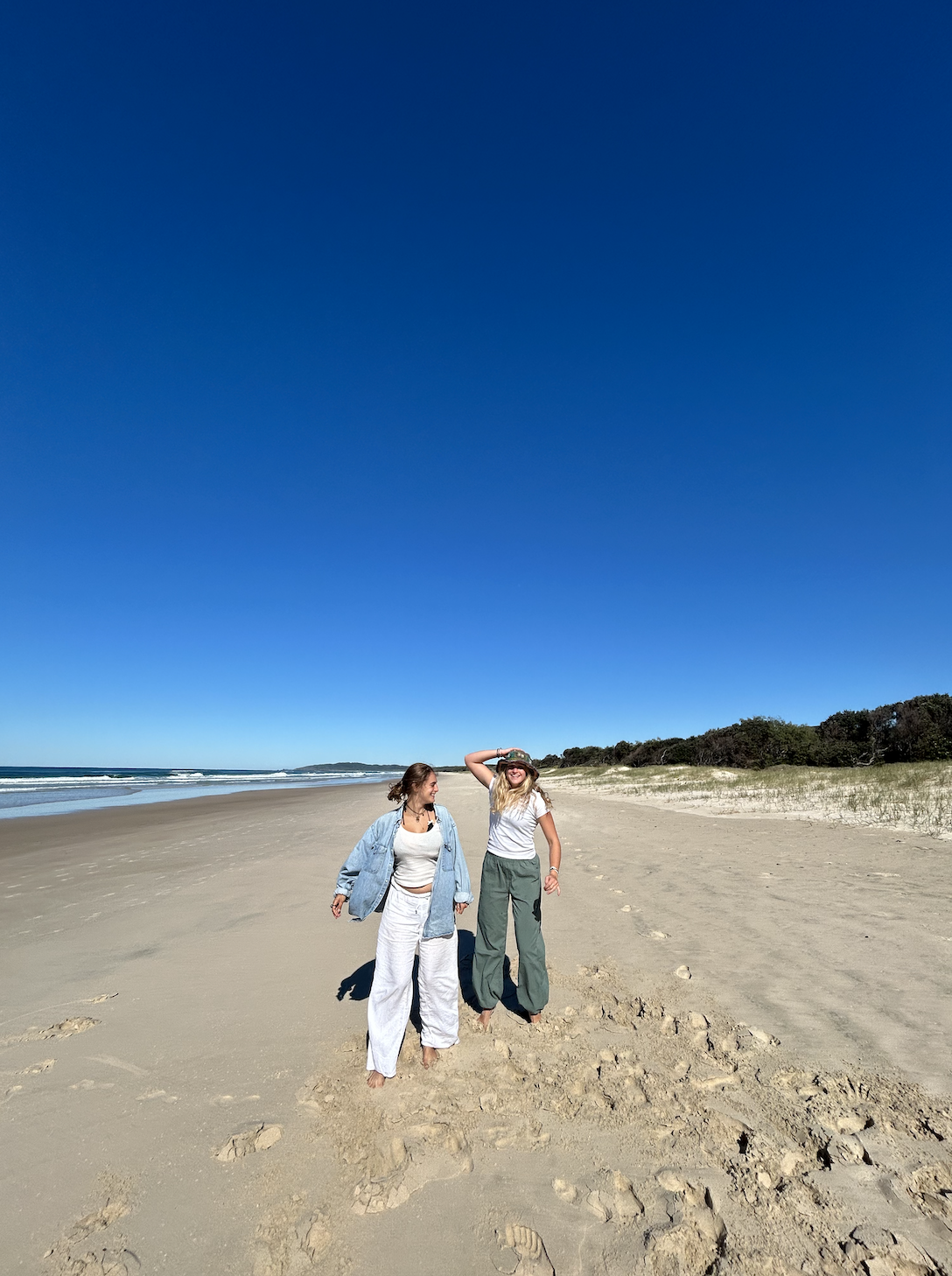
Left to right: Haley Bloch and Kseniya Yakovenko at Tallow Beach, Byron Bay, NSW, AUS (photo: Sierra Moll)
How were the academics?
My classes were very interesting and included many field trips: hiking, camping, AFL games, rugby games, surfing and beach excursions, for example. I would definitely recommend taking a lighter course load so that you have time to explore and hang out with all the new friends you make!
How was the social aspect?
I was lucky enough to play on one of the USYD club volleyball teams, where I met one of my close friends. I played beach volleyball sometimes, and other days when school was not on, we would go for a surf with my friends. However, keep in mind to find good surf, you may need a car. Some weekends, I spent going to concerts, others on camping trips; but some I would also enjoy my days in the city, where I made Sydney feel like home.
Every month, if not more often, I would plan trips. I got to see Tasmania, Melbourne and Byron Bay, to name a few. I would say that my favourite memory was seeing New Zealand with my dad. We lived in a van for 10 days together, and rented a 16-person Airbnb in Hobart, Tasmania with all of my friends from school hanging out for a few days. Overall, I will carry these memories with me for the rest of my life.
My days were nothing like in Canada. I have been working hard at school and many different jobs since I was 16. Going on exchange, at least for me, really felt like taking time for myself and I finally got to live my life in a way that I wanted without any compromises.
In the mornings before it got too hot, I would often go for a run by the water. Also, Australians put something magical in their coffee because it is amazing. I think I had more than one thousand flat whites while I was there! Apart from having my daily coffee, or two… or three, I was in awe of the beaches in Sydney. So after class, I would go explore a new one. I found myself reading at Gordon’s Bay a lot and going for a swim. Then I would make dinner at home and go bouldering with some friends, where some nights we would end up getting a sweet treat or doing trivia at the pub.
After the experience
Would you recommend this experience to others? What can they look forward to?
Yes, yes, 100% YES! As I mentioned before, exchange was the best thing I could have done for myself as a student—but also as a person who loves travelling and new experiences. It pushed me out of my comfort zone, forced me to take risks and to problem solve many times. If you decide to go on exchange, you can look forward to discovering yourself and making lifelong connections.
What was the impact on your academic and personal development?
I believe this experience forced me out of my comfort zone when it came to socialization and networking. In the beginning, I felt quite shy approaching a group of people and introducing myself. However, with more practice, I became extremely comfortable entering a room and meeting new people by myself. This helped me make connections with my professors and other students. I learned how to network in professional settings by going to campus events.
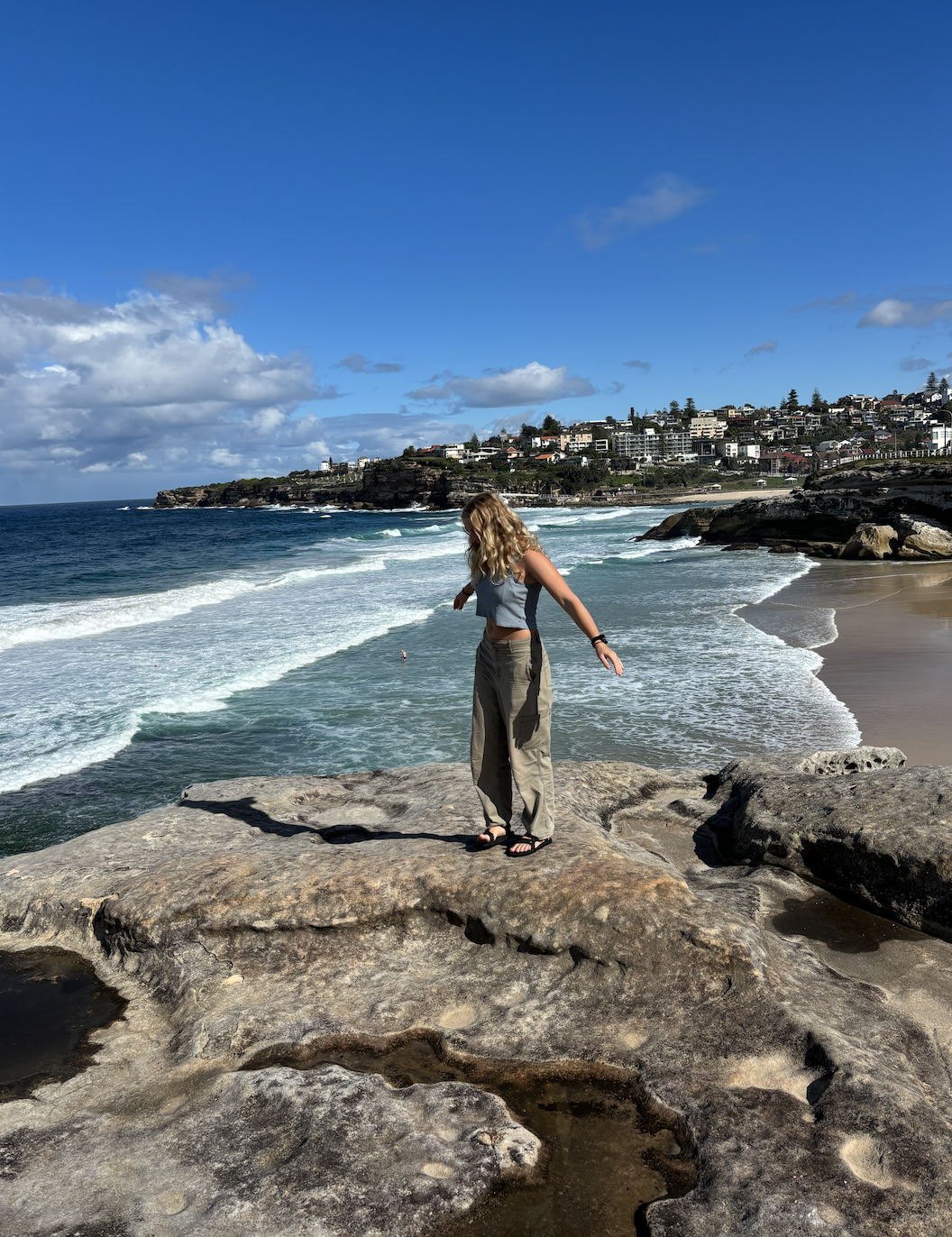
Kseniya Yakovenko at Tamarama Point, NSW, AUS (photo: Nina Tolnai)
These experiences also fueled my academic development because I was able to meet other students in my field, and was offered many opportunities for volunteering and even work. I also met a professor who had his own research podcast that featured one of my UBC Kinesiology professors on it!
Since I've returned to UBC, I have been able to continue developing these skills, which has led me to securing multiple Kinesiology career opportunities and to the job I have now. I am incredibly happy that I put all my doubts aside and committed to moving abroad for my fourth year of university. It was the best way to finish up my undergrad, and I came out of the experience with skills that I will use for the rest of my life.
Read more Go Global student stories.
